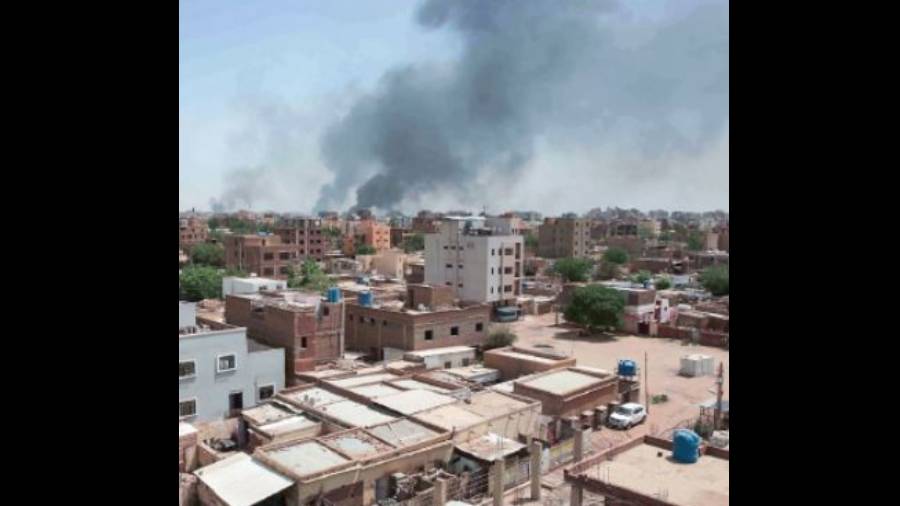In the 12 days since war broke out in Sudan, armed fighters with one of the military factions battling for control have occupied large parts of the capital, Khartoum, setting up roadblocks, moving into homes and taking over stores and hospitals.
Those residents who have not already fled say they have had to learn how to survive living cheek by jowl with the feared, unpredictable troops of the Rapid Support Forces, a paramilitary group that until days ago was part of a military-led government.
Civilians negotiate with RSF fighters at roadblocks for safe passage, share food and water with them, and sometimes receive warnings from them about an upcoming battle — giving residents time to either bolt or run back inside and lock their doors.
The fighters have alternately terrified and wooed civilians. In one neighbourhood, a resident said, they handed out milk. In another, they invited community members to share in the spoils of their looting. In another, they turned vigilantes, punishing petty criminals.
Many residents try to avoid them as much as possible.
“Apparently they don’t have anyone that gives them orders so they’re just doing their thing,” said Dania Atabani, who lives in Khartoum. “Very dangerous and chaotic.”
The RSF and the regular army have been combating each other, led by rival generals vying for power in Sudan, a northeast African country of 45 million people surrounded by seven nations. But in many neighbourhoods of Khartoum and its twin city, Omdurman, across the Nile, residents interviewed by phone and text over the past week say the army is nowhere to be found on the ground.
“The RSF remains hyper-focused on winning Khartoum,” said Alan Boswell, the Horn of Africa project director at the International Crisis Group. “This is the ultimate showdown.”
In the first few days of the conflict, the RSF engaged in fierce fighting in Khartoum neighbourhoods like Al Amarat and Khartoum 2, close to the city’s international airport, occupying streets where there are many embassies and wealthy residents. They also set up checkpoints in upscale neighbourhoods like al-Riyadh, where they placed antiaircraft guns in front of homes to target the circling army planes.
The RSF fighters are usually in groups of five to 20 at checkpoints, residents said, though in the Kafouri neighbourhood north of the capital, more than 50 gathered at one point. They usually carry bazookas, Kalashnikov rifles and machine guns, and arrive in Toyota pickup trucks. Some residents said they sometimes even had antiaircraft guns.
“Since the first day, they are spreading through the neighbourhoods and they are taking the people as shields,” said Gasim Amin Oshi, an engineer turned activist and community organiser.
The RSF quickly moved into Oshi’s Baitalmaal neighbourhood in Omdurman, set up checkpoints on the bridge, and then headed straight for the police headquarters, taking it after a short gun battle.
Next, they went to the national radio and television station, then the hospital, a technical school, and several buildings. They ransacked the supermarket and looted bakeries. As people evacuated, the fighters began to occupy homes in the neighbourhood.
“I can’t move freely, I can’t get my stuff freely. We have a small window to move around in,” Oshi said. In the afternoons, when fighting slows, he risks going out in search of food and medical supplies but tries not to attract attention.
New York Times News Service











